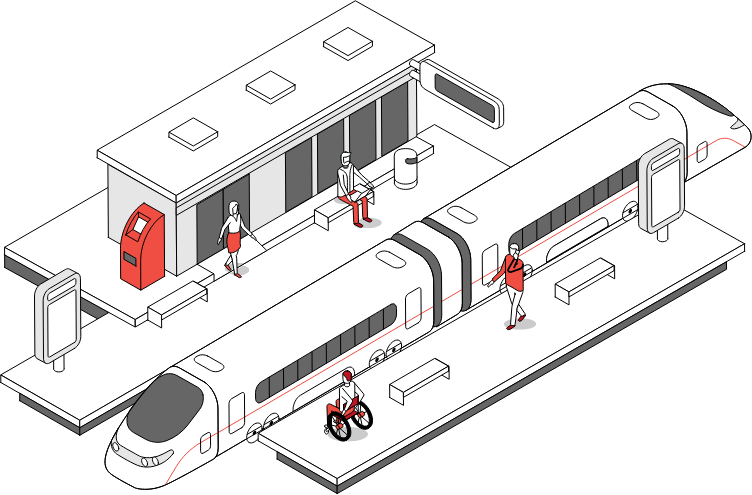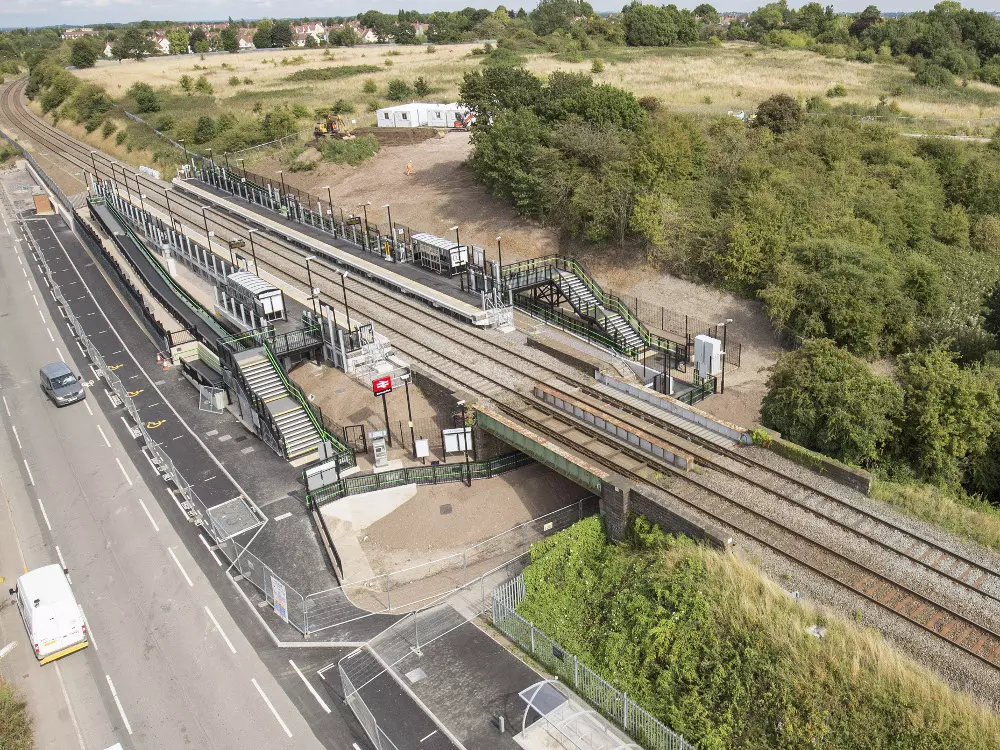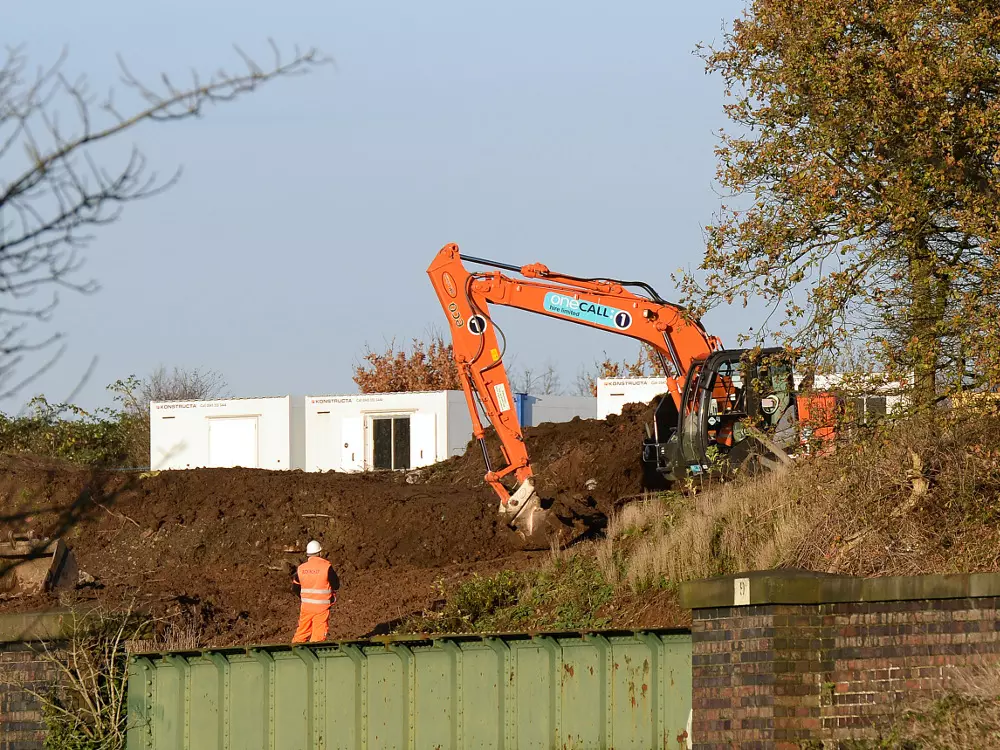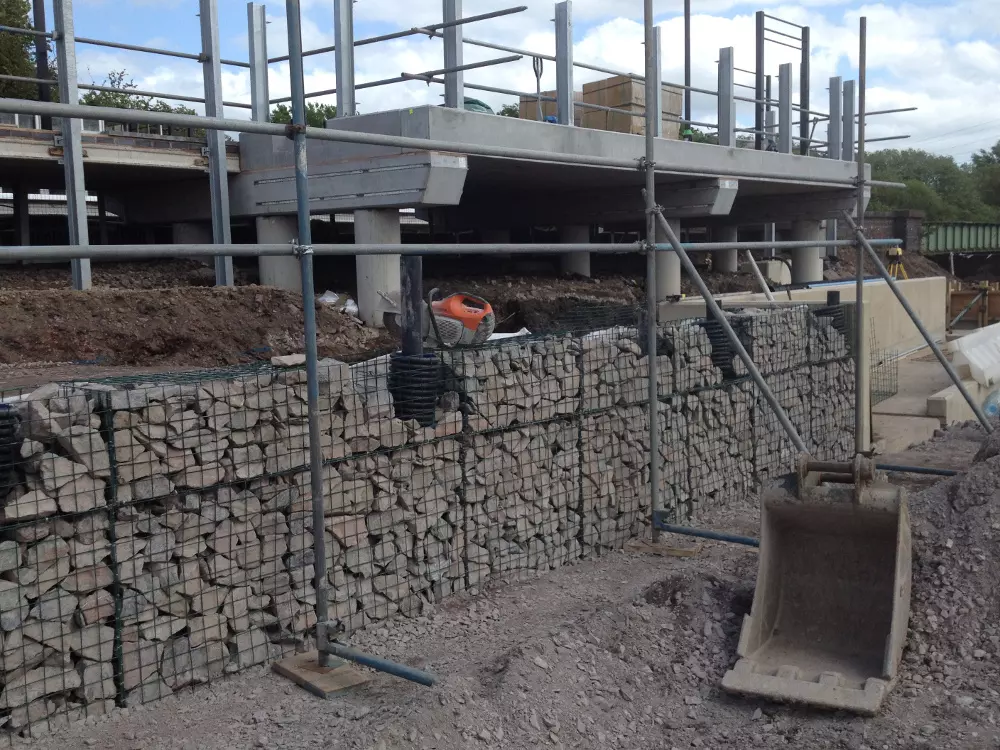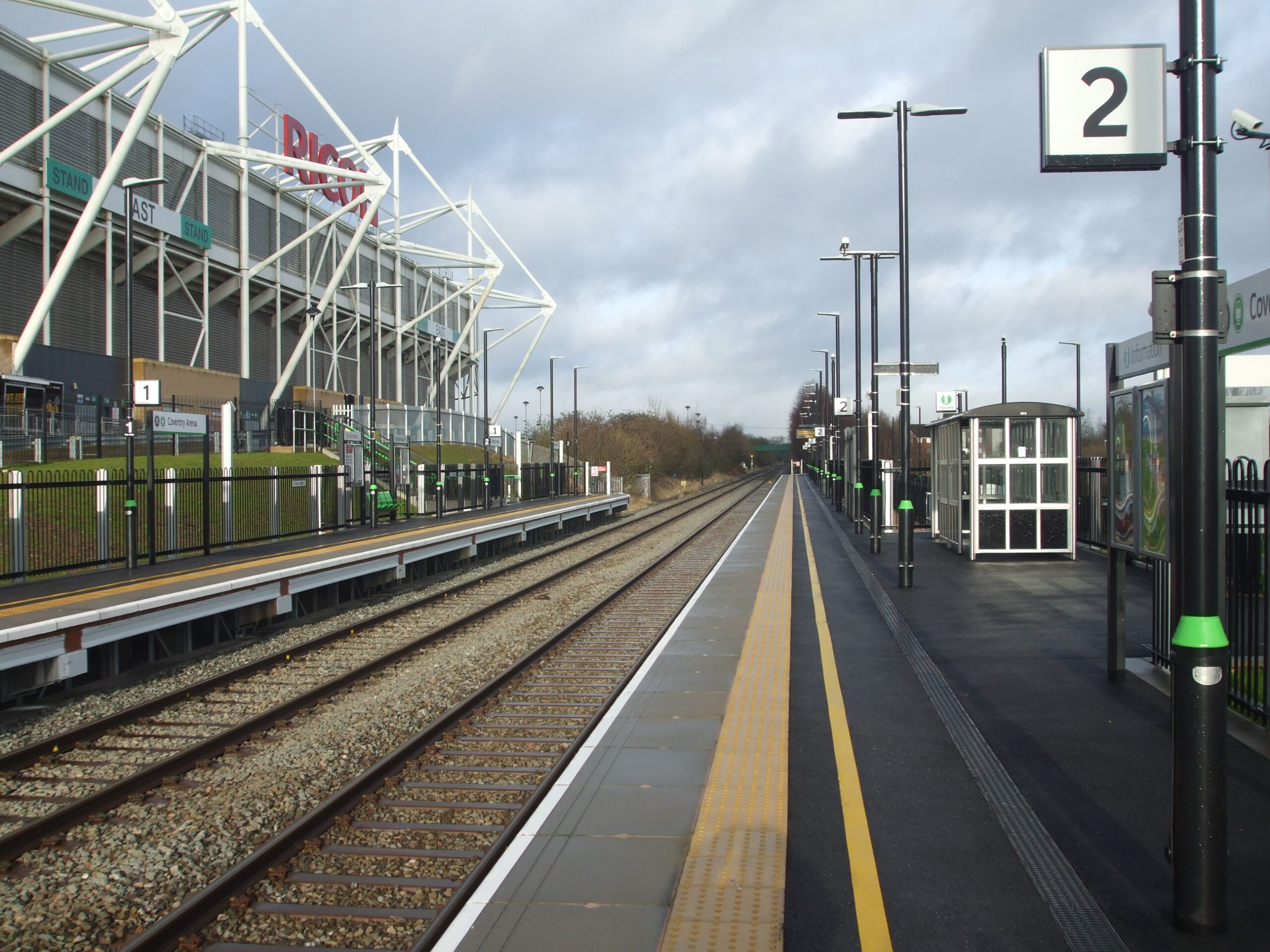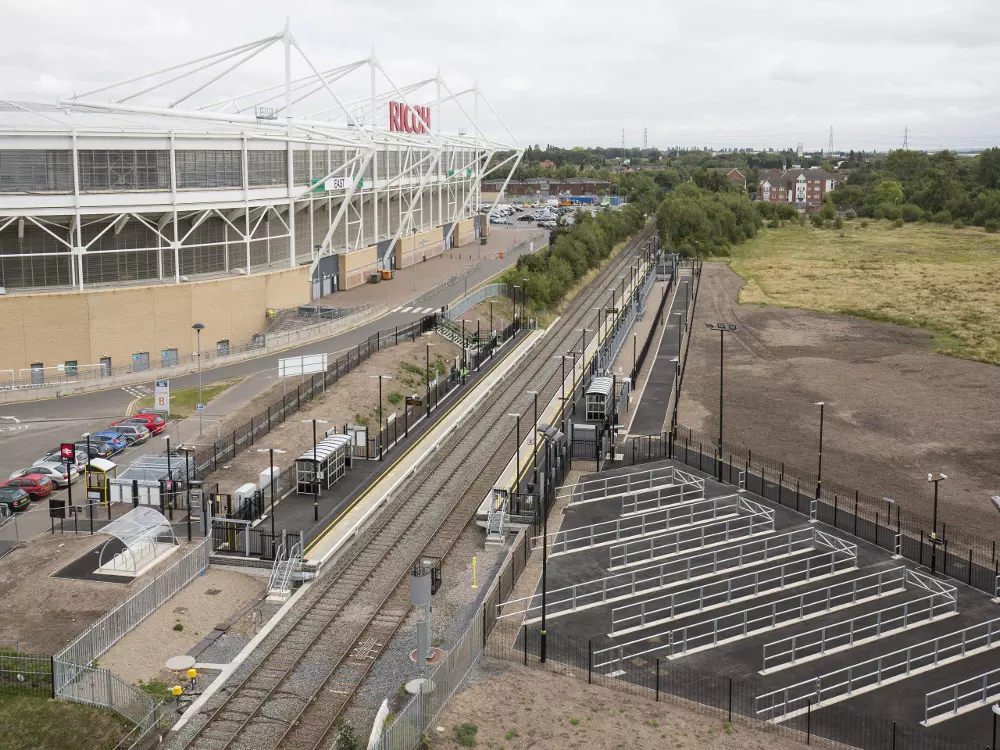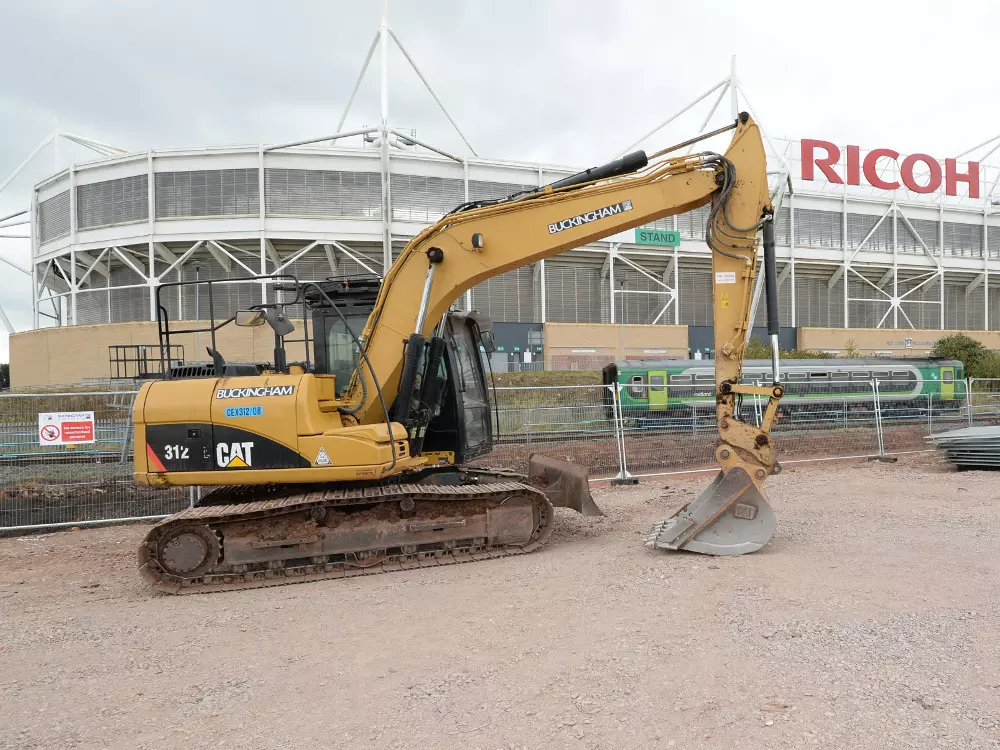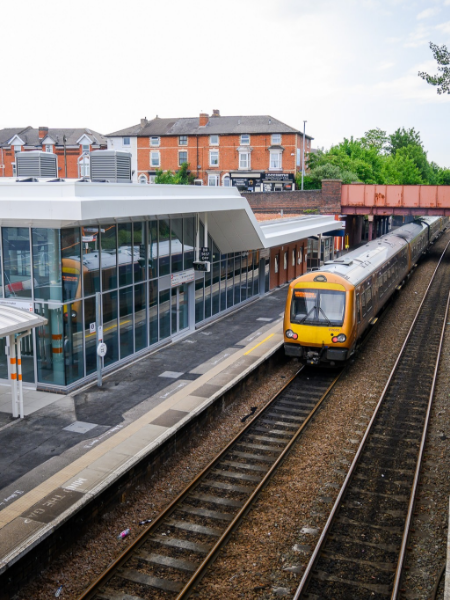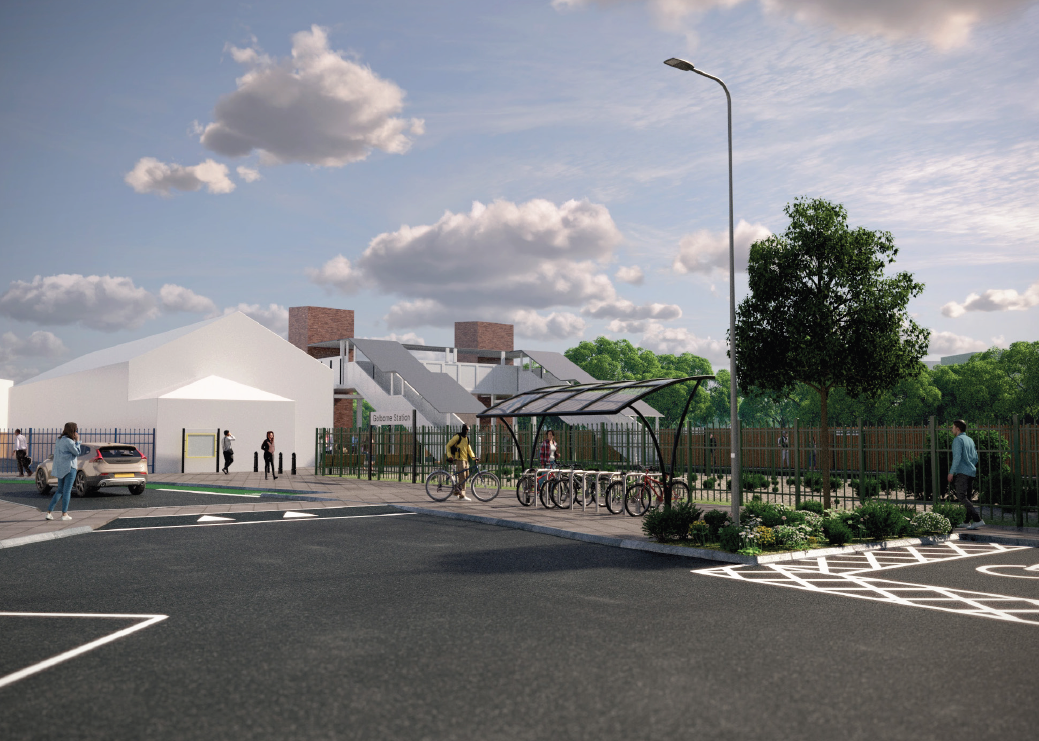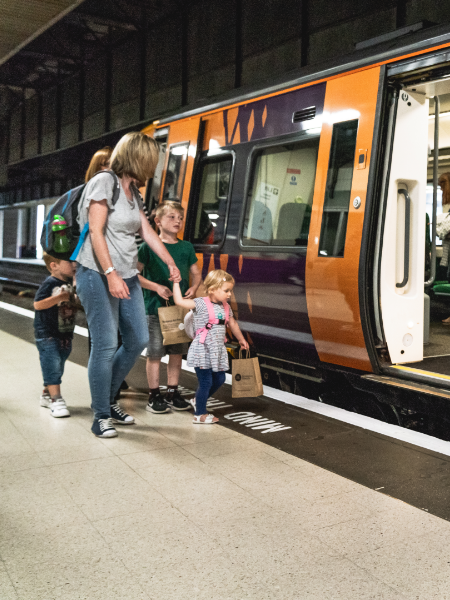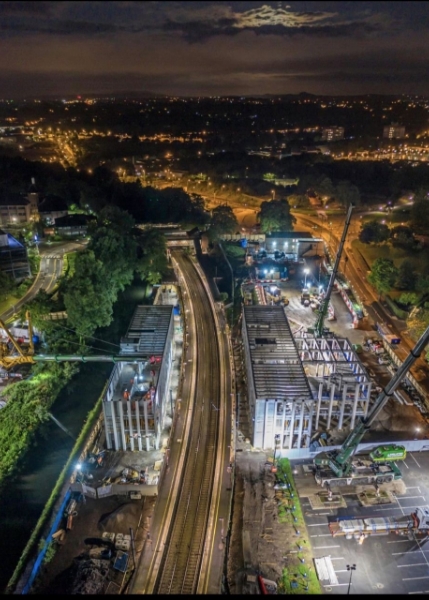Coventry to Nuneaton Upgrade
Improving links between local economies and amenities with new stations at Coventry Arena and Bermuda Park, platform extensions at Bedworth, a new platform at Coventry Station, plus track and signalling work.
Project overview
This project forms the first phase of a larger scheme, known as NUCKLE (Nuneaton, Coventry, Kenilworth, Leamington Spa), which was conceived in order to upgrade rail services to support the economy of the Leamington Spa to Nuneaton corridor. The second phase of NUCKLE is the construction of the new Kenilworth Station, which opened in 2018.
We provided rail advice and project management services for Coventry City Council and its partners, Warwickshire County Council and Centro.
Project development and funding
In 2011, we were asked by Coventry City Council to help reshape the financial business case and work with their appointed designers to develop the project through to outline designs (GRIP4), in order to secure funding. In December 2011, the DfT announced funding of £9.8m for the overall scheme. Funding valued at £3.5m was also provided by the European Regional Development Fund.
Our team worked with Network Rail and London Midland to negotiate all the necessary legal agreements, rail industry consents and contracts to pave the way for delivering the rail infrastructure works.
We managed the Invitation to Tender (ITT) on behalf of Coventry City Council. Following issue of the ITT, it became clear that there were no contractors with available resources to take on the signalling work for the new platform at Coventry or the track and signalling work at Coventry Arena. Rather than delaying the entire project, we worked with Coventry City Council to split the project into two separately viable packages – Package 1 for the new stations and Package 2 for the new platform at Coventry and the track and signalling work at Coventry Arena.
In May 2014, following the completion of the competitive tendering process, Buckingham Group was appointed as design and build contractor for GRIP Stages 5-8.
Project management and delivery
We were responsible for managing the project delivery on behalf of Coventry City Council. This included administration of the design and build contract with Buckingham Group, management of the interface with London Midland and Network Rail, plus relations with other third-parties. At the busiest stages of the project, our team was responsible for overseeing parallel construction works at three different sites, liaising with up to 60 different representatives from local and national government, contractors, train operator, Network Rail, utilities, land owners and local interest groups. We also coordinated specialist rail input to the Safety Advisory Group at the Ricoh Arena, to adapt their crowd control and emergency response plans for the new station.
The key challenges in delivering the project were:
- Level crossing safety: The site of the new Coventry Arena Station is close to a level crossing in a residential area. Concerns were raised locally that longer wait times at the crossing might lead to pedestrian safety incidents. By carrying out various risk assessments together with Network Rail, we were able to include mitigation measures that successfully overcame the objections.
- Design specifics: Bermuda Park Station presented a number of design challenges, arising from its proximity to a flood culvert and also its position on an embankment. Although experts from the design contractor and from Network Rail had quite different ideas about the approach to the piling work, we were able to facilitate a compromise which not only provided a cost-effective solution, but was ultimately held up as an example of best practice.
- Signalling: In order to accommodate the new platform at Coventry Arena, a signal had to be moved by Network Rail. Due to technical complexities this work was delayed. Working with the contractor and designer, the project was revised in order to minimise the impact and to allow other work to progress.
- Track work: Because this line had been used mainly for freight, the tracks are carried on steel sleepers, which can be very difficult to move. With the insights of our team and the expertise of Network Rail engineers, an approach to tamping the tracks was devised that achieved the desired outputs without the cost and delay of lifting and relaying the track.
Our team managed the station build projects through to completion, including ensuring compliance with the Railways Interoperability Regulations (RIR) and Common Safety Method (CSM). Managing the extensive rail industry handback process, the land, leases, assets and operations were transferred to Network Rail and train services started from the new stations on 18th January 2016. The project to extend the platform at Bedworth Station was completed in December 2016.

